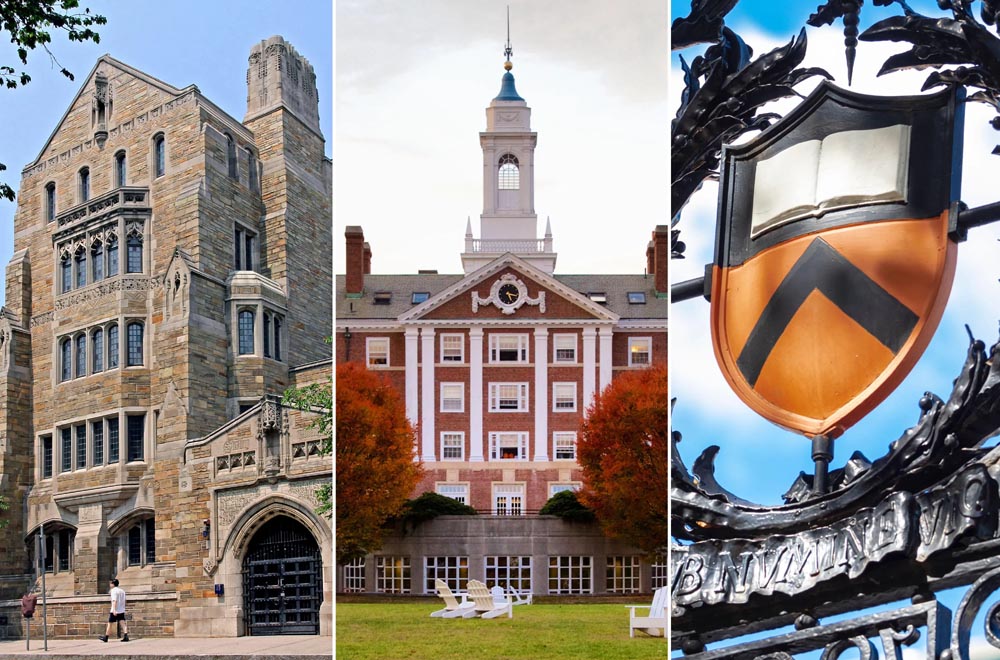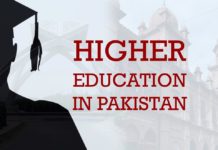Disclaimer: The Eqbal Ahmad Centre for Public Education (EACPE) encourages critical and independent thinking and believes in a free expression of one’s opinion. However, the views expressed in contributed articles are solely those of their respective authors and do not necessarily reflect the position or policy of the EACPE.
Looking back at the past 4 years of my college life here in Pakistan I never even in my wildest dreams would’ve thought that I would fall a victim to this ruthless ailment of chasing after Ivy Leagues. Spending time going through the admission criteria of these prestigious universities hoping that stepping through the iron gates into a paradise of towering stone buildings will somehow take away my worries which is obviously not true even in the slightest. I’m just unable to grasp the hype of it all.
Being a law student I feel like if I don’t acquire a fancy degree from any of these elite schools I won’t get the recognition and respect attributed to all the high achievers in my field.
I guess it’s just this notion deeply ingrained in our minds that if you somehow manage to graduate from any of these schools then your life would be all rainbows and joys but the case turns out to be the exact opposite of that. No matter at what stage of your life you might be you always have to struggle either physically or mentally to make both ends meet in this world. But let’s not stray too far from the main subject which is debunking the myth of Ivy Leagues.
I’m sure many apt scholars and polymaths have done a great job trying shutting down the flames of these notoriously famous schools and I know I can never do justice to their thesis but still I’m going to try share my humble outlook on the matter at hand.
All our lives we are taught to work hard to the core, to slog our way through life in order to be successful. So we unknowingly give in to the social pressure and exert our literal blood, sweat and tears just to avoid the humiliation of being called a ‘failure’ or worse an ‘average’. Just because it’s hard to get into Ivy Leagues and because of the competitive environment they provide (the hallmark of perfect institutions considered by the masses), it’s necessary to strive blindly for them without estimating the merits and costs with respect to programs applied for or without taking into account the fact that whether the environment offered by these institutes is suitable for the students to grow academically while maintaining mental composure or not.
As MastersPortal explains, Ivy League universities in the U.S. began as a group association of eight highly competitive athletic colleges. As their athletic teams began to attract more funding and gained fame, the standards for student performance and admission became increasingly more demanding and rigorous.
As per DataUSA, in 2019, the undergraduate acceptance rate of Harvard University was 4.64%, which was just two thousand admissions from approximately forty-three thousand applications! At the same time, these institutions tend to be some of the most expensive schools and universities in the world, with extremely high tuition rates (over $50k on an average).
We as a nation are far too obsessed with the western hemisphere. Despite the fact that our nation is oozing with brilliant minds and varying degrees of talents up to the brink, still we choose to ascribe prestige and success to the schools of the New World and downplay the part of our national institutions.
According to the set standards if we want to be included in the top brass of the society especially the private sector we need to make waves out of the country and acquire an over-priced education.
In the struggle for it all the students lose sight of the basic purpose of the education. Instead of taking pains to actually learn and develop skills and gain experience related to their field of choice, they start fixating over their grades which results in an air of brutal competition and risk of developing mental and neural disorders for some.
Why don’t we focus on making our own institutions better? The dismal state of affairs surrounding the educational sector in Pakistan is the reason why so many students are constantly fearing for their futures and are toiling hard in order to pursue their higher studies abroad.
But the Ivy League enigma is a different ball game altogether. The way it has dominated the whole scene on the academic front and has taken global youth under its wing, it’s truly hard to decipher its agenda behind all of this fiasco.
One 2019 survey by the American College Health Association found that over the course of a year, 55.9% of students reported feeling hopelessness, 65.6% reported feeling very lonely, 70.8% reported feeling very sad, and 65.7% reported overwhelming anxiety. Nearly half said that at some point in the year they felt so depressed that it was difficult to function.
The goal should be to work hard in order to become excellent in the field of choice, not to stress over getting diplomas from these few select institutions.
These institutions are renowned as they provide their students with networking opportunities with other successful graduates, some of the best in the world. Also, professors at these universities are usually more experienced in their fields due to more research grants directed towards these universities. But it should in no way mean that the students who are unable to have an access to these opportunities are at a loss or that they cannot climb up the social ladder. There is no harm in working hard and applying to these well-reputed schools. The main argument is that the students should not center their whole lives around these big names and forget to work on their main goal which is to work hard and develop expertise in their respective fields.
The need of the hour is that the youth focus on setting its priorities straight. The goal should be to work hard in order to excel in the field of choice, not to stress over getting diplomas from these few select institutions. It’s high time for changing the set standards for gauging the merits and capabilities of the students. Such standards should be based on assessing a person’s knowledge and command relating to his course of study rather than accrediting importance to his alma mater. Students should be taught to develop and improve their critical analyses skills and uncover their hidden potential. Opportunities should be provided to the lower socio-economic strata of the society to hone their skills and play their part in improving the overall condition of the nation. Focus should be on applying the minds and getting the desired results rather than on obsessing over high priced degrees.
A contributed article by Sunbal Nawaz Lashari









